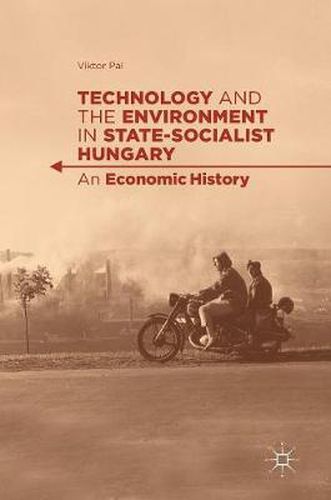Readings Newsletter
Become a Readings Member to make your shopping experience even easier.
Sign in or sign up for free!
You’re not far away from qualifying for FREE standard shipping within Australia
You’ve qualified for FREE standard shipping within Australia
The cart is loading…






This title is printed to order. This book may have been self-published. If so, we cannot guarantee the quality of the content. In the main most books will have gone through the editing process however some may not. We therefore suggest that you be aware of this before ordering this book. If in doubt check either the author or publisher’s details as we are unable to accept any returns unless they are faulty. Please contact us if you have any questions.
This book explains how and why the state-socialist regime in Hungary used technology and propaganda to foster industrialization and the conservation of natural resources simultaneously. Further, this book explains why this process was ultimately a failure. By exploring the environmental pre-history of communist Hungary before analyzing the economic development of the Kadar regime, Pal investigates how economic and environmental policies and technology transfer were negotiated between the official communist ideology and the global economic reality of capitalist markets. Pal argues that the modernization project of the Kadar regime (1956-1990) facilitated ecological consciousness - at both an individual and societal level - which provoked great social unrest when positive environmental impact was not achieved.
Today, global issues of climate change, urban pollution, resource depletion, and overpopulation transcend political systems, but economic and environmental discourses varied greatly in the twentieth century. This volume is important reading for all those interested in economic and environmental history, as well as political science.
$9.00 standard shipping within Australia
FREE standard shipping within Australia for orders over $100.00
Express & International shipping calculated at checkout
This title is printed to order. This book may have been self-published. If so, we cannot guarantee the quality of the content. In the main most books will have gone through the editing process however some may not. We therefore suggest that you be aware of this before ordering this book. If in doubt check either the author or publisher’s details as we are unable to accept any returns unless they are faulty. Please contact us if you have any questions.
This book explains how and why the state-socialist regime in Hungary used technology and propaganda to foster industrialization and the conservation of natural resources simultaneously. Further, this book explains why this process was ultimately a failure. By exploring the environmental pre-history of communist Hungary before analyzing the economic development of the Kadar regime, Pal investigates how economic and environmental policies and technology transfer were negotiated between the official communist ideology and the global economic reality of capitalist markets. Pal argues that the modernization project of the Kadar regime (1956-1990) facilitated ecological consciousness - at both an individual and societal level - which provoked great social unrest when positive environmental impact was not achieved.
Today, global issues of climate change, urban pollution, resource depletion, and overpopulation transcend political systems, but economic and environmental discourses varied greatly in the twentieth century. This volume is important reading for all those interested in economic and environmental history, as well as political science.